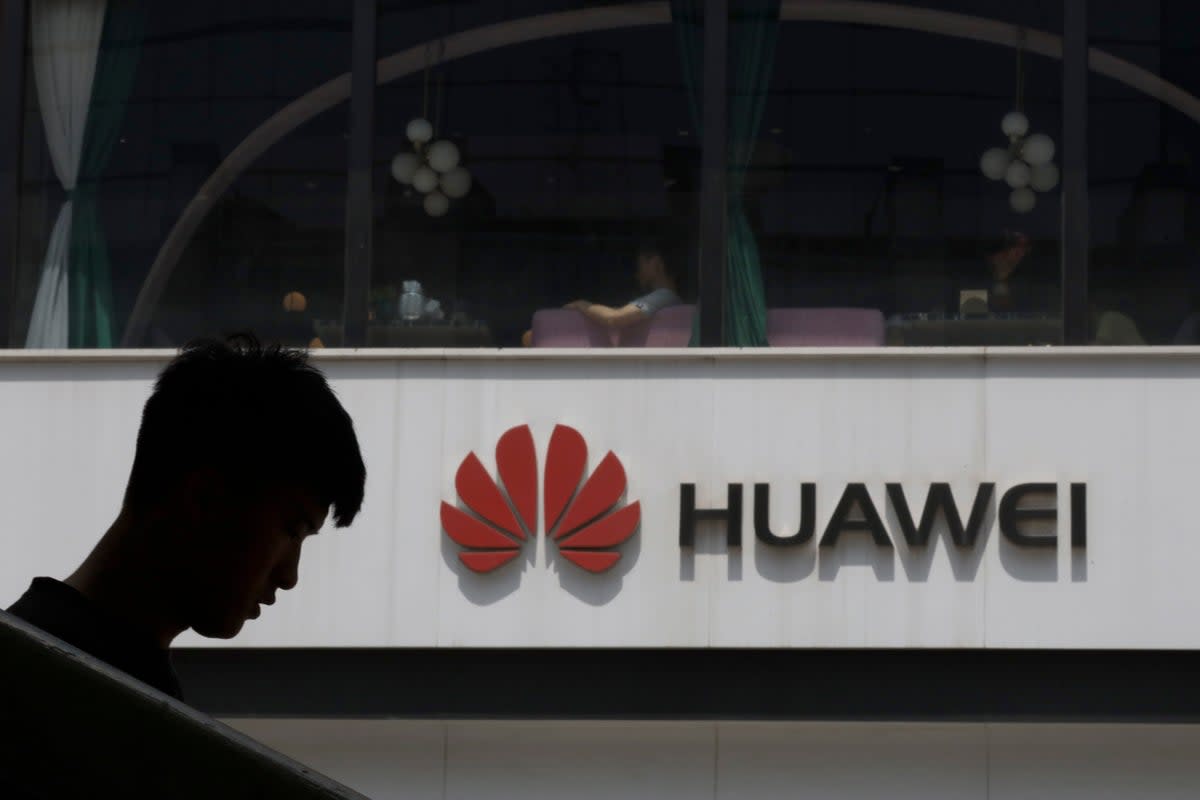Voices: We need to start taking China’s tech threat seriously

If presented with a large, menacing, and at times seemingly undetectable danger, you would assume one would take steps to alleviate themselves from said danger.
Certainly, what you wouldn’t do, is nothing.
Yet, when presented with a similar danger in China – a large, menacing and at times seemingly undetectable threat – we appear to be doing very little except gawping at the danger before us.
The Intelligence and Security Committee warned about China’s “whole-of-state” approach: co-opting state institutions, companies, and citizens that, whilst difficult to detect, are contrary to our values. From setting up overseas police stations to exfiltrating IP from universities and industry, this is a multi-pronged assault on our security, prosperity, and liberal democracy.
In response, the government said there is “a long way to go” towards a China strategy “which is forward thinking, joined up and utilises a ‘whole-of-government’ approach”. This has been long overdue, and China is taking advantage. Research from Civitas in November 2023 showed that up to one third of all Chinese funding, grants and contributions made to UK universities come from entities linked to the Chinese military, including 20 per cent from entities subject to US sanctions.
As MI5’s director general warned recently, if you are working at the cutting edge of technology today, “you might not be interested in geopolitics, but geopolitics is certainly interested in you”. China’s geopolitical and economic intentions – which go hand in hand – are no secret. In fact, they openly publicise it. The Made in China 2025 plan highlights key sectors such as AI, biotechnology, EVs and pharmaceuticals which the state will target for global domination. Last year, the heads of MI5 and the FBI argued that technology goals under Made in China cannot be achieved without illicit activities.
China’s “whole-of-state” approach is most evident in the genomics sector, and related biotechnologies, which sits within the life sciences specialism. Genomics – the study of human genes and how genes interact with each other – can map physical and mental characteristics and identify susceptibility to diseases. As science highlights new links between DNA and human traits, access to genetic data across different populations gives countries a strategic edge.
That is why China sees genetic data as “the new gold”. The technology also has a dual-use component which could be used nefariously: potentially leading to genetically enhanced soldiers or engineered viruses. From reports, we know Beijing is already trying.
China’s biggest genomics company, BGI Group, and its main affiliate MGI Tech, are Beijing’s “national champions” – joining the likes of Huawei, Alibaba and Tencent. While ostensibly legitimate, the Pentagon has blacklisted BGI subsidiaries as Chinese military companies and sanctioned them in 2021 and 2023 for abusive genetic data collection schemes which enabled the repression of ethnic minorities. In 2021, the US National Security Commission on AI warned “BGI Group may be serving… as a global collection mechanism for the Chinese government”.
In contrast BGI, which continues to sell its controversial pregnancy tests to mothers in the UK, which a Reuters investigation in 2021 found was developed with the Chinese military, was awarded a public contract for Covid-19 testing in 2021, and its subsidiaries and affiliate MGI Tech have widespread links across academia, providing technology, funding and researchers.
The genomics sector is a pertinent case study where a “whole-of-government” strategy is needed.
The first step is raising awareness of the issue outside and across government. Traditional concepts of national security have been replaced by China’s public-private obscurity, which is an invidious approach where entities operate interchangeably. Whitehall’s propensity for short-term thinking also prevents decisionmakers from seeing the long-term implications of technology to our strategic advantage.
Whitehall’s inconsistent approach was best demonstrated in the foreign secretary’s session with the Foreign Affairs committee this week. When asked about BGI, he said he would “go away and look at it”, despite the science minister calling BGI a “danger point” to the UK’s technology and science sector during a Westminster Hall Debate in March 2023.
Secondly, policymakers need to establish clear guardrails for public institutions and private businesses who are engaging with entities in sectors Beijing is targeting. Government must provide greater support for our world-leading healthcare providers, from the NHS to major private healthcare companies with access to advanced technology such as Bupa, HCA or AXA. This includes greater transparency on security assessments and a clearer articulation of why engaging with companies such as BGI and MGI Tech brings risks.
The government has set up the Research Collaboration Advice Team to guide academia against hostile state actors. This is, in essence, a self-referral mechanism for cash-strapped universities facing lucrative research partnerships and grants. It has failed to prevent the scale of infiltration across academia by malign entities. And if risks have not been articulated clearly, we cannot blame universities for succumbing to China. Organisations should not carry the burden of making complex security judgements.
Finally, a coordinated China strategy requires a reconfiguration of the state. Genomics cuts across multiple departments: DSIT, DHSC, FCDO, DBIT, DoE, the Cabinet Office, the Treasury. No committee or regulator has primary responsibility for scrutinising how we are dealing with this multi-faceted issue. Without a “whole-of-government” approach, companies linked to the Chinese state will fall between the cracks.
Bob Seely is the Conservative MP for the Isle of Wight, and is on the Foreign Affairs Select Committee


